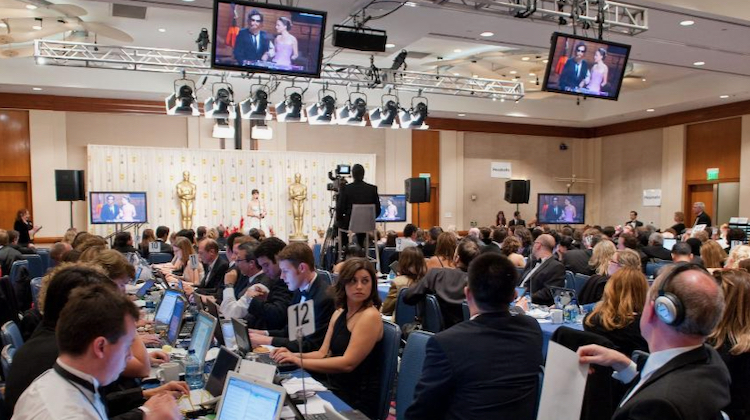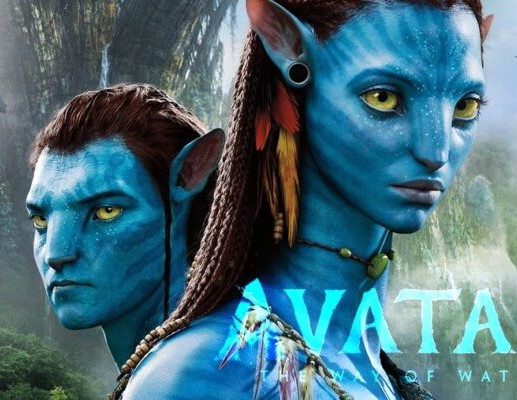“Top Gun: Maverick” and “Avatar: The Way of Water” can win Oscar Best Picture, say awards pundits, instead of the low-grossing, high-brow movies that usually scoop up Hollywood’s most prestigious award.
The National Board of Review (NBR), which is composed of up-market film buffs, actually voted Paramount Pictures’ “Maverick” its Best Picture earlier this month. That’s not just nominated but winning!
Founded back in 1909, NBR is an organization of film enthusiasts whose selections are traditionally harbingers of Academy Awards to follow. “Top Gun: Maverick is a thrilling crowd-pleaser that is expertly crafted on every level,” said NBR President Annie Schulhof.
The PG-13 rated “Maverick” grossed an astronomical $719 million domestically and $1.5 billion on a global basis, and “Avatar 2” is in early stages of a similar blockbuster cinema run for Walt Disney Studios. “Maverick” “defibrillated a near-dead theatrical industry,” wrote Benjamin Svetkey in media business news website TheWrap. “And now, for its next miracle, ‘Top Gun: Maverick’ needs to save the Oscars. Because, boy, do they need saving.” Last year’s Oscars telecasts on ABC Television averaged 17 million viewers, versus a peak of 58 million in 1998, when “Titanic” was crowned Best Picture.
Want validation from real film critics and not just enthusiasts like NBR and trade news journalists? Individual critics listed on the Gold Derby awards website rate PG-13 classified “Avatar 2” and “Maverick” highly, mostly in their top three. They also like rock biography “Elvis” from Warner Bros. Pictures, which staddles the line between serious and mass market. These films are landing at the top of various pre-Oscars best picture lists, more so than mass-appeal films in recent years.

Low-grossing arty films frequently nab the Oscar Best Picture over the past two decades. Conspicuous examples are “Nomaland” in 2021 (a miniscule $3.7 million in domestic boxoffice), “Moonlight” in 2016 ($27.8 million), “The Hurt Locker” in 2009 ($17 million), and “Crash” in 2005 ($55.3 million). The Oscars evolved into an “indie film festival” enthralled by esoteric fare. The problem with that is the mass audience has little personal rooting interest in these films, making the Academy Awards telecast of declining interest. Even commercial films with artistic excellence get snubbed.
The voters of the Academy of Motion Picture Arts and Sciences (AMPAS) used to routinely nominate commercial films. The formulaic original “Star Wars” in 1977 comes to mind even though that mythical space adventure yarn had zero chance of actually winning. It was a nod to commerce and the audience.
Not since 1997 has a genuine crowd-pleaser won the Oscar for Best Picture. That’s a quarter of century since “Titanic” — then the highest grossing film of all time — swept the Oscars with 14 nominations and a high conversion-rate of 11 wins. In 2008, the acclaimed “Dark Night” didn’t even get nominated or Oscar Best Picture, despite serious drama and stylish filmmaking. The reason appeared to be its foundation in the “Batman” comic books, though this was no glib, card-board comic movie.
Why a comeback to hits now in the mood of the Oscars electorate? Well, the Oscar voters are getting nervous because the cash-cow awards is in decline, exemplified by sinking audience for the ABC Television ceremony telecast. Oscars organizer AMPAS collected $137.1 million last year from Oscar-related activities, with ABC Television’s license for the prime-time awards telecast is a financial mainstay for the non-profit organization.

AMPAS finances are strained from opening in September 2021 the Los Angeles-based Academy Museum of Motion Pictures, which is a costly enterprise facing an uphill battle to financially support itself. A Deadline.com article by Michael Cieply details those AMPAS financial strains.
An earlier sign of AMPAS concern for the TV awards audience decline was expanding the number of Best Picture Oscar nominees from 5-10 in 2009, from a previous five. That allowed some crowd-pleaser movies to stoke consumer interest in nominations conversation, even those high-grossing films didn’t have much of a chance to win.
This year’s Oscar cycle shifts in high gear on Jan 24, 2023, when nominations are announced, though to the March 12 awards, telecast by ABC Television.
The high-brow movies in contention for this awards cycle are Steven Spielberg’s semi-autobiographical “The Fabelmans” from Universal Pictures, classical music drama “Tár” from Focus Features (Universal), and supernatural drama “Everything All At Once,” which emerged as an artbuster hit grossing a sizeable $70 million domestically via distributor A24.
Related content:


Leave a Reply